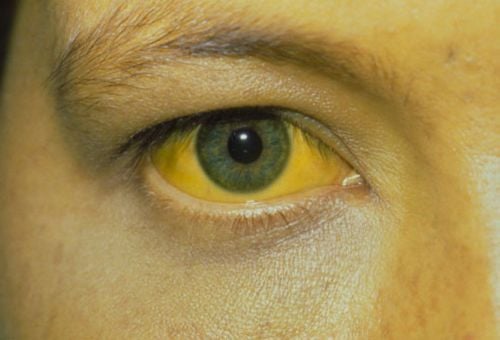Should people with diarrhea eat yogurt?
Diarrhea is a common condition and often lasts for a short period of time. Diarrhea can occur many times a year.. This is a condition of having more frequent bowel movements with at least 3 loose stools within 24 hours. Diarrhea can be caused by many factors, and some foods like yogurt can control or aggravate it. So the question is: Should you eat yogurt when having diarrhea?
1. Yogurt can help prevent or treat diarrhea
Some types of yogurts contain good bacteria (also known as probiotics) that can help prevent or treat diarrhea.
1.1 Infectious diarrhea
Studies show that taking probiotics weeks before travelling can reduce the risk of diarrhea by up to 15%. A review taken from 63 randomized trials shows that probiotics can shorten the symptom duration by up to 25 hours if it is caused by a bacterial, viral, or parasitic infection. The similar review also shows that people using probiotic products are 59% less likely to have diarrhea for more than 4 days compared with those who do not.
So, to answer the question of whether a child with diarrhea can eat yogurt, it is yes. The probiotics in yogurt can help prevent and treat diarrhea caused by infections.
1.2 Antibiotic-associated diarrhea
Antibiotics are also one of the common causes of diarrhea. They can disturb the balance of the intestinal environment, giving rise to harmful bacteria that cause diarrhea.
Studies have shown that taking probiotics with antibiotics can reduce the risk of diarrhea by up to 51%. However, their effectiveness may depend on one’s age. According to a study, probiotics are most effective in children and young adults, and less effective in people over 64.
So, to answer the question of whether people should eat yogurt while having antibiotic-associated diarrhea, it is yes.
1.3 Diarrhea caused by other conditions
Probiotics in yogurt can treat diarrhea caused by digestive disorders such as irritable bowel syndrome (IBS) or ulcerative colitis. Therefore, to answer the question of whether to eat yogurt with diarrhea caused by these two conditions: Yes.
Some yogurts contain probiotics, which are beneficial bacteria that have been shown to help prevent or treat different types of diarrhea.

2. Does every yogurt contain probiotics?
Bacteria are found in all fermented dairy products, also in yogurt. To make yogurt, specific bacteria are added to the milk, which converts sugars into lactic acid. This fermentation process helps produce yogurt.
To be considered a probiotic product, bacteria should be alive and provide health benefits. The first types of bacteria used to make yogurt are not considered probiotics because they usually can not survive during the digestive process so they bring no effect to a human body.
However, some companies add beneficial bacteria to their products. Probiotic strains that are effective in preventing and treating diarrhea in yogurt are: Bifidobacterium bifidum, Bifidobacterium lactis, Lactobacillus acidophilus, Lactobacillus reuteri, Lactobacillus rhamnosus, and Saccharomyces boulardii.
3. What types of yogurt are considered rich in probiotics?
To benefit the gut, experts say that there are 2 requirements for yogurt:
Provide more than 10 billion colony-forming units (CFUs) of probiotics per serving.
Contain strains of beneficial bacteria that can survive well in the acidic environment of the intestinal tract.
However, very few companies list the probiotic strains and colony-forming units (CFUs) they use in their products. Furthermore, a study shows that quite a few yogurt products contain bacterial strains not on the ingredient label. Additionally, up to 33% of products provide less colony-forming units (CFUs) than they should.
These factors make it difficult for users to choose a yogurt based on food labels. However, some companies have sent their products to third party labs to analyze the product and confirm the number of colony-forming units (CFUs) to ensure the quality is commensurate with consumer confidence. If you cannot find a third-party tested yogurt, choose one with a high colony-forming units (CFUs) count that provides one of the probiotic strains listed.

4. Yogurt can cause diarrhea in some people
Yogurt contains lactose - a milk sugar that up to 70% of people in the world cannot digest. People with lactose intolerance often experience diarrhea from eating foods rich in lactose, including yogurt.
However, some evidence suggests that probiotic-rich foods, such as yogurt, may help with lactose digestion. Therefore, it reduces unpleasant side effects like diarrhea.You can choose probiotic-rich yogurt if you have diarrhea after eating regular yogurt. If you are sure to have lactose intolerance, you should avoid probiotic-free yogurt products.
So, probiotic-rich yogurt can protect against many types of diarrhea such as traveler's diarrhea, infections, antibiotics, Crohn's disease and irritable bowel syndrome. We can conclude that it is good to eat yogurt when you have this condition. For effectiveness, you should choose yogurt that contains 10 billion colony-forming units (CFUs) or more, and many strains of good bacteria for the intestinal tract. However, if you are lactose intolerant as mentioned, yogurt can cause diarrhea so probiotic-rich plant-based yogurts are recommended.
To arrange an appointment, please call … or make your reservation directly HERE. You may also download the MyVinmec app to schedule appointments faster and manage your reservations more conveniently.
Please dial HOTLINE for more information or register for an appointment HERE. Download MyVinmec app to make appointments faster and to manage your bookings easily.













